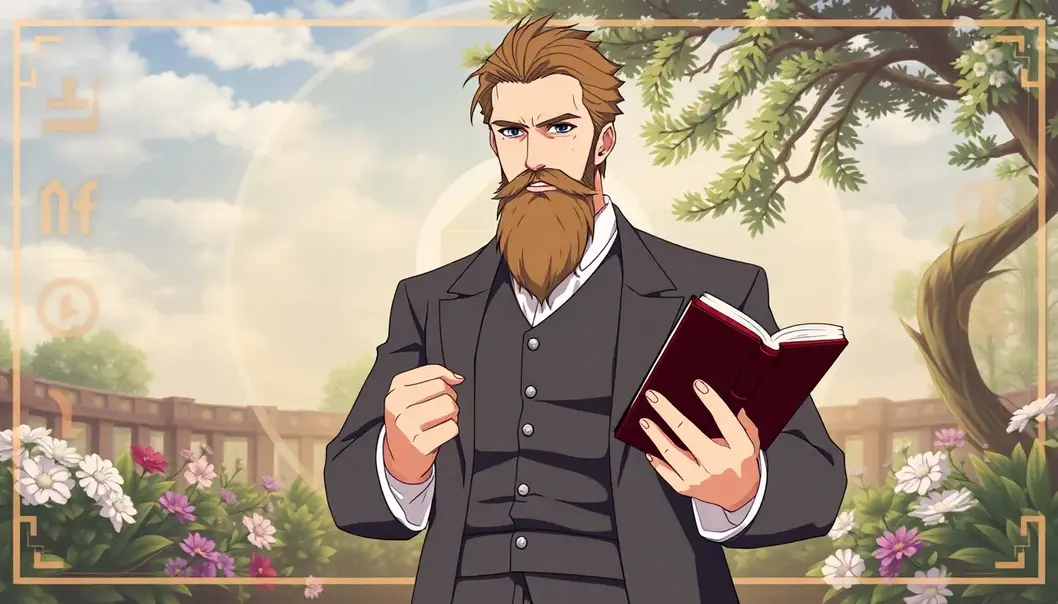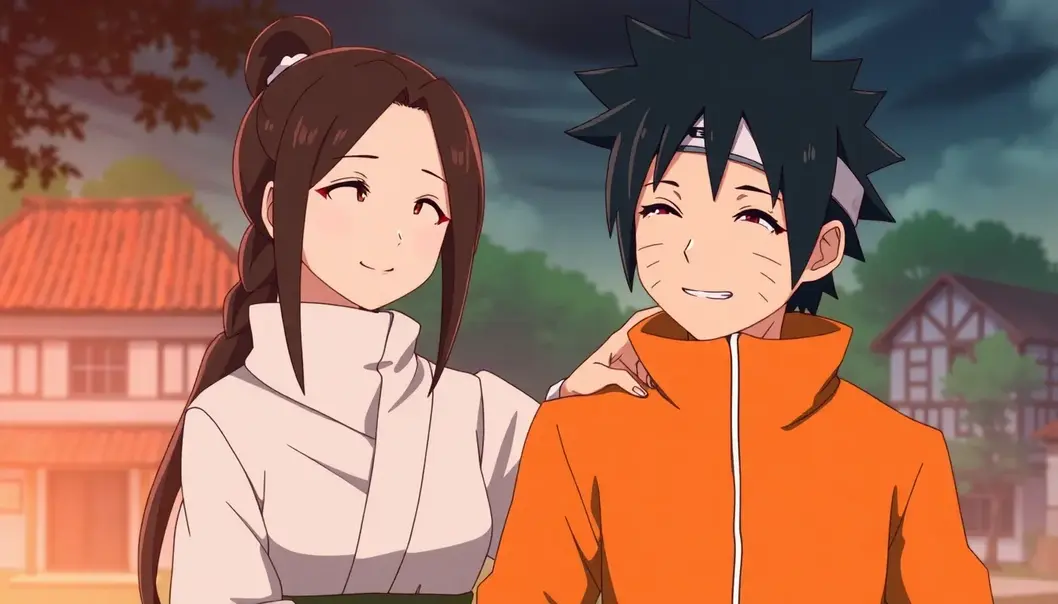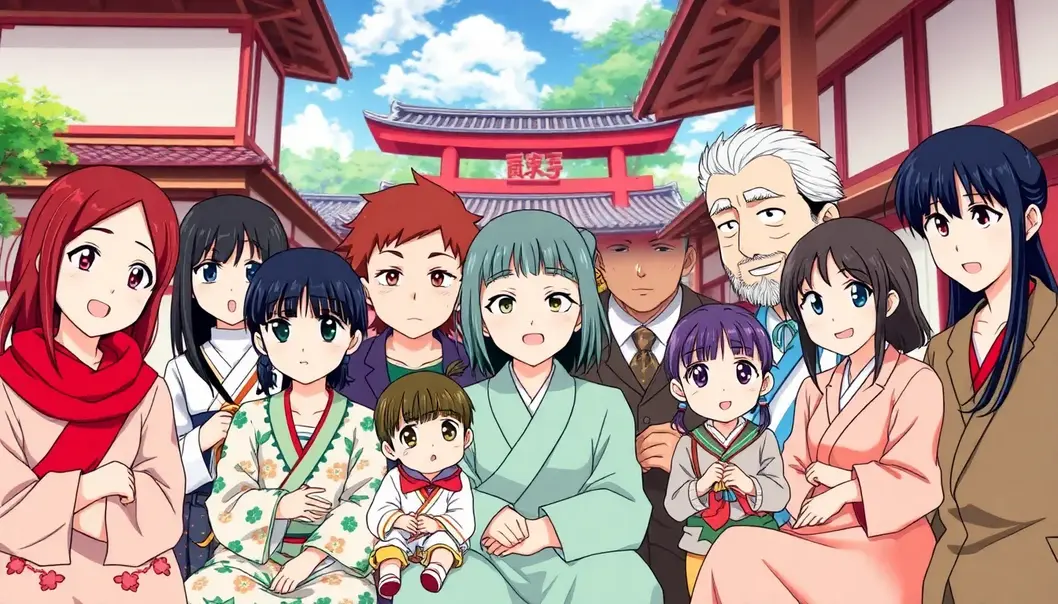Anime is a treasure trove of remarkable characters, each displaying a unique style of nurturing that reflects various parenting ideologies. Whether you’re a staunch admirer of the stoic wisdom of Fullmetal Alchemist’s Van Hohenheim, or inspired by the heartwarming care of Naruto’s Iruka, these characters echo the parenting styles resonating among many fans. Ever wonder which anime guardian your approach to parenting aligns with? Embark on this exciting exploration of anime-inspired parenting styles to discover which character’s approach mirrors your own. Anime fans, unite your otaku skills in dissecting these styles and unravel the mystery of who you really are as a parent in the anime universe!
The Stoic and Wise: Stoicism at Its Best

Channeling the quiet strength and wisdom of characters like Hohenheim from Fullmetal Alchemist or Piccolo from Dragon Ball, this parenting style exemplifies resilience and inner fortitude. These anime characters, though often reserved in their emotional expression, provide their children with a foundation of unwavering support and disciplined guidance. It’s a model of parenting where the actions and decisions are intricately calculated, always aimed at teaching profound life lessons.
Hohenheim, a perpetually serene yet deeply introspective figure, guides his sons by exemplifying integrity and accountability. He may not always be present physically, yet his influence pervades their lives through the values and lessons he imparts. In Fullmetal Alchemist, his profound impact on the philosophical outlook of Edward and Alphonse Elric is unmistakable. Through his quiet sacrifice and principled approach, Hohenheim teaches his children about the harsh truths of their world. His stoic demeanor belies a profound love that values his children’s growth into independent, morally grounded individuals.
Piccolo, on the other hand, transforms from rival to mentor, embodying a unique blend of toughness and care in his relationship with Gohan. In Dragon Ball, Piccolo’s initial stern façade softens over time, revealing a deeper investment in Gohan’s growth. Through rigorous training and high expectations, he compels Gohan to push beyond his limits, molding him into a formidable fighter and confident individual. Piccolo’s parenting approach is less about shielding his protégé from adversity and more about preparing him to face it head-on, enhancing his resilience and self-sufficiency.
Both characters exemplify how wisdom and discipline can transcend traditional displays of affection. Where conventional parenting leans heavily on overt emotional support, the stoic style focuses on imparting life skills and endurance. It’s a pathway not solely about nurturing but about empowering children to develop their inner strength. The lessons from these anime mentors often arise from actions rather than words, with patience playing a pivotal role.
Patience, indeed, underscores this style’s effectiveness. The quiet waiting as children navigate challenges independently fosters an environment ripe for maturity and introspection. These characters understand that growth often demands solitude and self-discovery. Their role resembles that of a steady lighthouse – consistently guiding yet never intruding on their children’s journey.
In embracing a stoic and wisdom-centered parenting approach inspired by Hohenheim or Piccolo, one commits to raising resilient individuals capable of introspection and critical thinking. While it may not suit every parent or child, its potential to cultivate strength and autonomy remains unparalleled in the animated worlds from which it hails.
The Warm Nurturer: Love and Protection

The world of anime is filled with vivid personalities, yet few touch us as deeply as those embodying the warm nurturer archetype. Characters like Masaki Kurosaki from Bleach and Iruka Umino from Naruto highlight a style of parenting that revolves around profound kindness and protection. Their approach, rooted in unconditional emotional support, provides their children with a safe cocoon from which they can emerge confident and self-assured.
Masaki Kurosaki, despite her untimely demise, leaves an indelible impression on her son, Ichigo. Her unwavering love and fierce protection, even at the cost of her own life, play a pivotal role in shaping Ichigo’s understanding of family and strength. This nurturing style is not merely about physical safety but also about fostering an environment where emotional bonds flourish. Masaki’s influence lives on, guiding Ichigo through challenges and nurturing his innate resilience.
Similarly, Iruka Umino, while not Naruto’s biological father, stands by him with steadfast empathy and encouragement. Iruka’s understanding nature offers Naruto a refuge from the harsh judgments of the world, bridging the gaps of loneliness with love and acceptance. Through heartwarming sessions where he listens to Naruto’s struggles and offers guidance, Iruka instills confidence and a sense of belonging. These moments of compassion transform Naruto’s life, enabling him to trust and open up to others.
This empathetic approach to parenting, as showcased by these characters, proves powerful in building lasting relationships. Masaki and Iruka’s styles underscore how protection and love can overcome life’s adversities, binding their families together through affection and understanding. They teach us that through love, we empower our children to face the world’s storms, ready to shine with kindness and strength. Such parental warmth doesn’t just support—it emboldens, turning life’s inevitable battles into opportunities for profound growth and connection.
For anyone resonating with the warmth of nurturing companionship, these guardian figures remind us of the inherent power in love and protection. To pursue the comfort and loyalty inspired by Iruka and Masaki’s nurturing, one might find inspiration in holistic places, perhaps even in the fur of a loyal companion, as celebrated in Wag More, Worry Less: The Dog Lover’s Motto. Their stories illustrate how protection woven with love creates a resilient, enduring bond that withstands any trial.
Final words
Anime parenting styles reflect the vast spectrum of nurturing approaches found in real life. Whether your style aligns with the wise stoicism of Van Hohenheim or the nurturing warmth of Iruka Umino, these characters remind us of the complexities and joys of parenting. As you continue your journey as a parent or guardian, draw inspiration from these animated paragons to enhance your nurturing prowess.
Embrace your anime parenting style and improve your nurturing skills. Visit AnimeNurtureExperts for courses inspired by iconic anime wisdom.
Learn more: http://animenurtureexperts.com
About us
AnimeNurtureExperts offers courses and resources to help you incorporate anime-inspired wisdom into your parenting style, enhancing both understanding and connection with your children through engaging, animated teachings.

